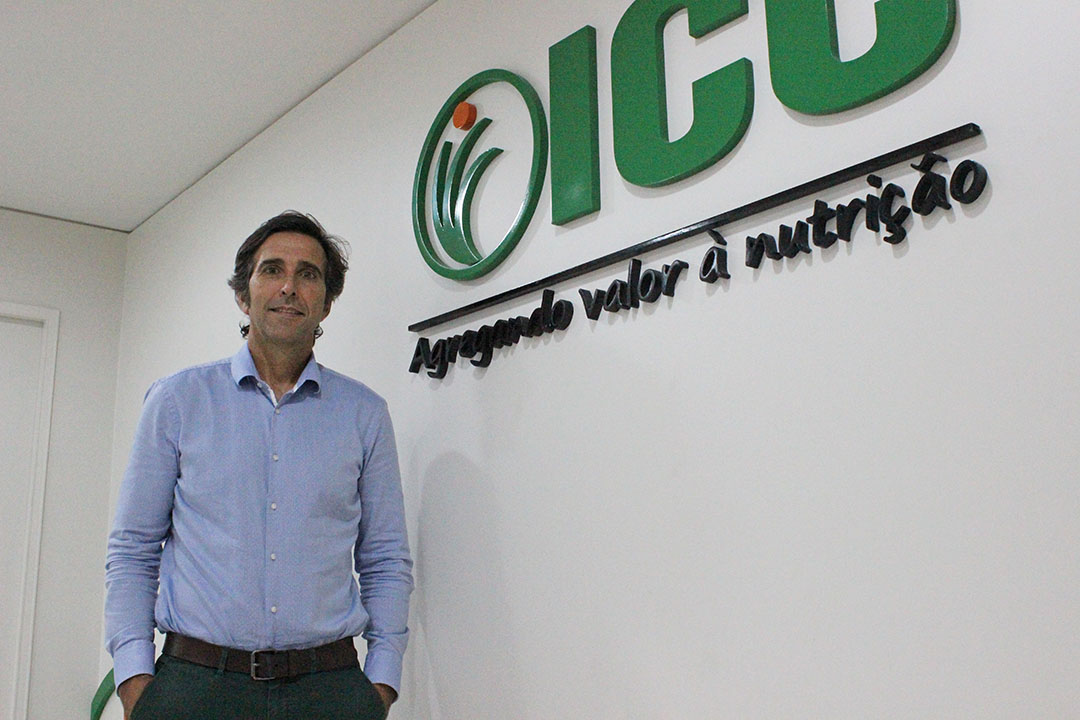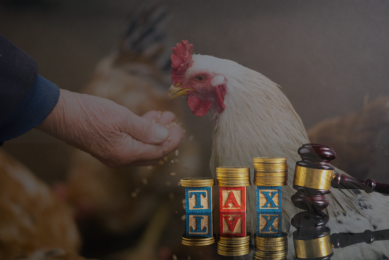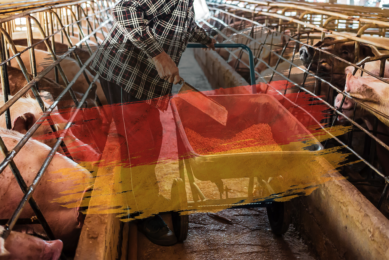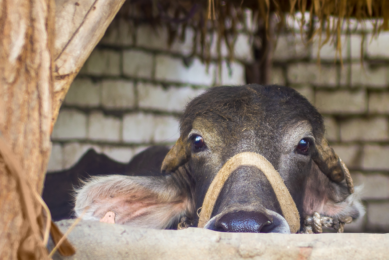ICC Brazil: Globally promoting sugar cane yeast

Serving the planet with agricultural solutions brings a set of challenges of its own. For 28 years now, yeast manufacturer ICC Brazil has been shipping its solutions based on sugar cane worldwide. What are the benefits of sugar cane and what developments are around the corner? The company’s CEO, Glycon Duarte Santos, explains.
In terms of agricultural technology, a large part of input for the Brazilian market comes from far, travelling from Northern America, Europe or even Asia. That doesn’t mean, however, that there is no technology going in the other direction. The company ICC Brazil, headquartered in São Paulo, Brazil, manufactures yeast products from sugarcane for animal producers around the globe. Glycon Duarte Santos, CEO, founded the company 27 years ago. He explains how the firm has grown, serving clients in 55 countries and what his plans are for the future in a highly competitive market as animal nutrition.
|
All About Feed: Have you been involved with the company throughout its existence?
Glycon Duarte Santos: “I am one of ICC Brazil’s founders. Freshly graduated, I was working in a company that went bankrupt in 1990, during a phase of shock in the Brazilian economy. The government had blocked bank accounts and hundreds of corporations went bust. Despite those consequences, this period also opened our market. My job was focused on foreign trade and thus I founded ICC Brazil to export sugar cane products. From the sugar cane to yeast and animal production was a natural step.”
Could you describe the production process?
“We produce yeast from sugarcane. The product has various technical advantages. The yeast culture passes through numerous fermentation cycles, making the yeast cell wall much denser, resulting in higher carbohydrate rates and lower fat content in its composition, making it less digestible inside the intestinal tract.
“The product may vary greatly in colour from light beige to dark brown. This colour variation does not interfere with the quality and functionality of the product. Considering that β-glucans are like the yeast cell wall ‘skeleton’, it is important to consider the ratio between β-glucans and MOS to measure it effectiveness. The higher the β-glucans concentration, the lower the cell wall degradation in the gastrointestinal tract.
“ICC Brazil has always invested in research. Over the last five years, research has become one of our main activities. We have done 217 studies in vivo with several universities in Brazil as well as abroad – the majority being abroad. That way, we could prove the quality and deliveries of our products.
“I will never say that baker’s yeast or beer yeast is not good; they are excellent choices. We understand that our product is a bit better because the cell walls are stronger. As this type of yeast is more difficult to digest, farmers will lose less during digestion. We like to classify yeast as a functional fibre. It has to isolate pathogens, to stimulate the immunological system and to absorb mycotoxins.”
Is it an advantage to be located in Brazil in comparison to other yeast producers?
“I think it is a big disadvantage. Our yeast is here, but Brazil’s logistics are complex. Brazil has been improving over last 27 years but we have to do a lot in order to be efficient. Our current structure is still not how we would like it to be, but things are improving.
“One of the problems relates to the place Brazil takes in global trade. There are relatively few ships coming to Brazil, so it is difficult to get space inside them. On top of that, we have to compete with Chinese producers, which are much more agile. Geographically, we are not exactly located at the centre of game board. China and India are. Think of China, South East Asia, Europe – that is where 70% of animal production across the world takes place. That is where we have to sell.”
Do you think the world will see more Brazilian companies become active as global players?
“We have to improve and get an excellent name with regard to international trade; there is nothing else we can do. Chinese entrepreneurs are very strong. I have been to China more than 70 times and we have five staff members there. Things are going so fast there that it is impossible to have an updated picture of the country.
“In addition, India is coming! Another 1.3 billion people right in the heart of the game board. Still, Brazilian companies can advance, we have to. Brazil produces 75 million tonnes of animal feed and the world produces about 1 billion. Add to that, that 92% of the market is located abroad. That is why we need to act with the international market in mind.
“Traditionally, our advantage is that Brazil has a vocation for agribusiness. Currently, our yeast business is divided between 70% abroad and 30% internal market. If we are successful, that will move to 90% vs 10%.”
How does the Brazilian agricultural industry feel about antibiotic reduction in livestock production?
“It is a one-way street, with no return. Just imagine ‘Ms Mary’, your average consumer; she will always prefer antibiotic-free meat. That is no longer a question.
“Moreover, if you use antibiotics, you are reinforcing pathogens. Nowadays, however, controlling some diseases is more difficult than before. The fact is that antibiotic growth promoters are unnecessary. It is just an easier way of management, dismissing good practices like environmental aspects, cleaning, water, air, animal handling or feed quality. I think it is possible to do it better, although there is no magic bullet. Neither yeast nor acids will solve it alone. I choose good management, a good environment and nutrition enriched with functional elements. It is good for animals and humans alike.
“That is a big challenge! People don’t want antibiotics. There is a big wave against animal protein, think of people turning vegan or vegetarian. What kind of practices do we use to defend our activities? ‘Ms Mary’ loves her meat. Don’t give her a reason to be vegetarian.”
When you tell all that to farmers, how do they react?
“Well, this is not a simple matter of substitution. It requires a comprehensive approach and farmers are aware that markets are changing. Producers who went ahead are gaining ground, certainly. Argentina has prohibited the use of antibiotics, so did the United States and others did too. Large restaurants and retailers are driving this change at the expense of the producers. As a sector, we should be on top of this, because our business is being questioned across the world. So, I think Brazilian authorities ought to lead this unstoppable process as soon as possible.”
How do you feel about the new Bolsonaro government in Brazil – is this a good thing or not and why?
“I am optimistic to some extent because I see a kind of myopia in every government: They have difficulty seeing what really matters on a daily basis. For example, product registration. We can register in the United States with USDA documentation within one day. Here, in Brazil, however, it takes months to be done and the process is not easy.
“Another topic is related to trade promotion. I am very critical about the current model of having big booths at trade shows. I think we better opt for the Chilean model. If I know that my market is in e.g. Botswana or Vietnam, I would go there, preferably with the support of my government. That might be truly helpful.”
What are your growth plans for the future?
“Europe is our main market – a huge challenge due to its high quality standards. We have been there for many years despite the struggle it was to get there. We are hoping that Brazil or Mercosur (a South American trade bloc, ed.) will finally make a free trade agreement with the EU because currently yeast is taxed. That is why it is a very important market but fiercely competitive. We have several competitors in France, Germany, the United States and China. Still, ICC seeks growth in Europe.”
What kind of innovations do you have planned?
“We are working on a complementary portfolio apart from yeast. We have found out that technical results are likely to be a lot better, when the yeast is mixed with acidifying and essential oils.
I expect ICC will launch this portfolio during 2019 or in the very beginning of 2020.”
Last but not least: Is it possible to feed 9.2 billion people in 2050 on this planet?
“I have no doubt. It is possible to feed 10 billion and also in the way ‘Ms Mary’ wants. Technology is pivotal to do that. Using what we already know, we can produce much better.”
ICC Brazil at a glanceICC Brazil, headquartered in São Paulo, Brazil, manufactures yeast products, based on sugarcane, for use in animal nutrition. The company, which employs 150 people, has offices in India, China, Europe, US and Uruguay and sells about 60,000 tonnes of products/year. Revenues predominantly come from the pig and poultry business, but the products also get delivered to the pet, dairy, beef cattle and aqua business. About 70% of the products go abroad, well divided over 55 countries. In Brazil, ICC has factories in Macatuba and Santos (both in São Paulo state); in addition, there are 17 units inside ethanol plants in São Paulo and Goias states. The company’s flagship product for pigs is Hilyses, a hydrolysed yeast, a source of free nucleotides. |


 Profile
Profile








